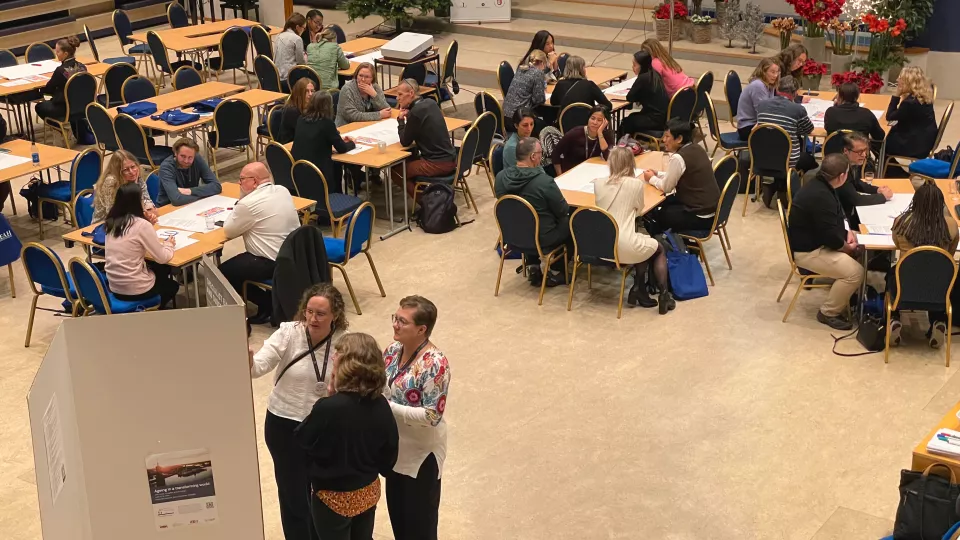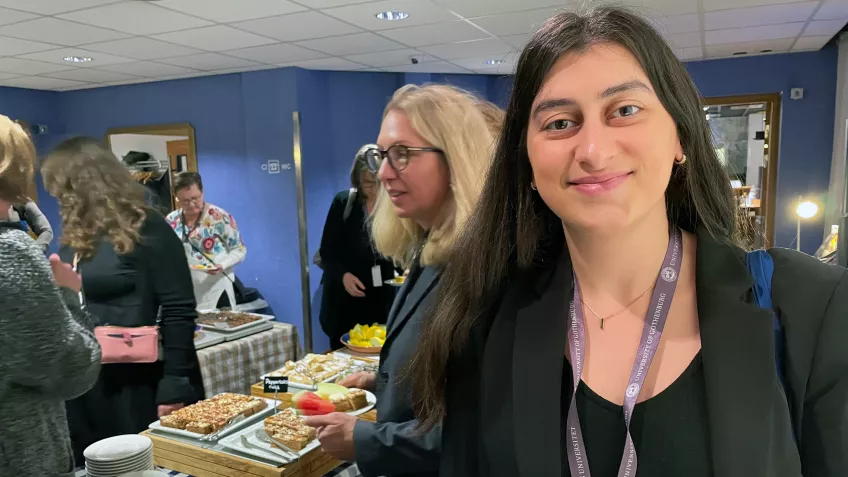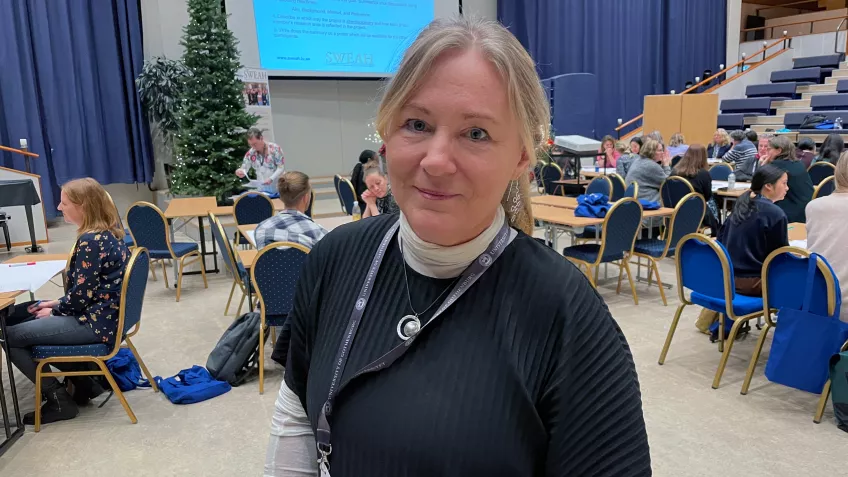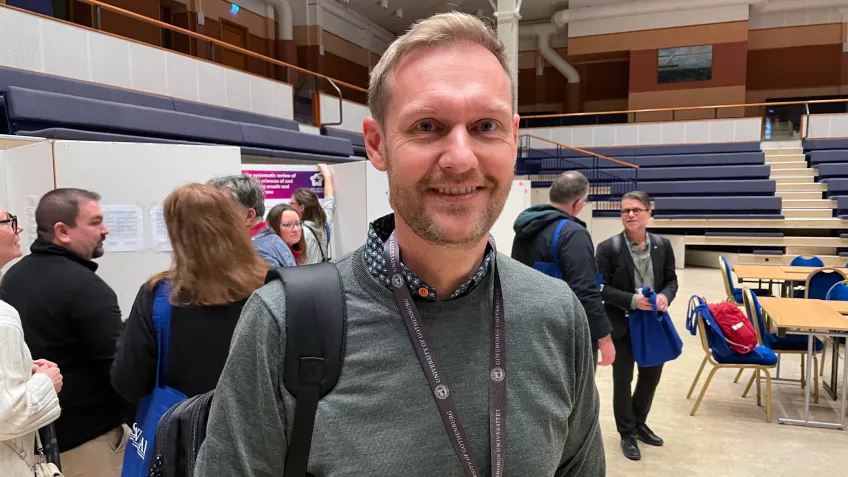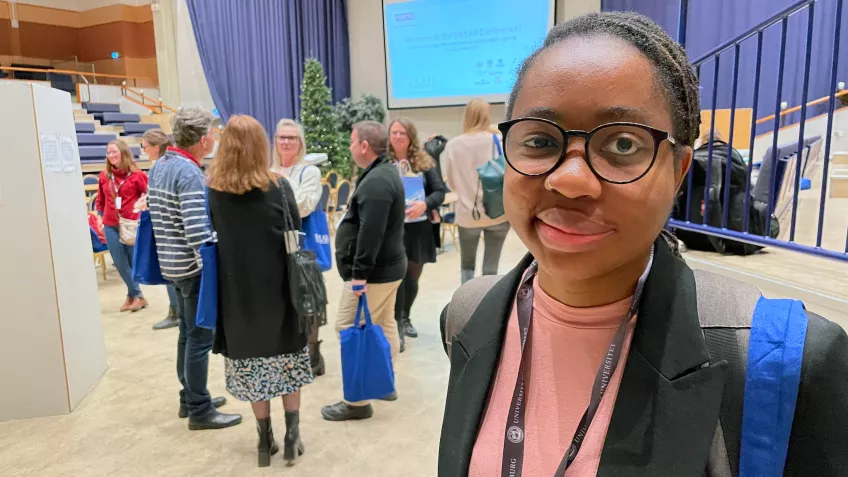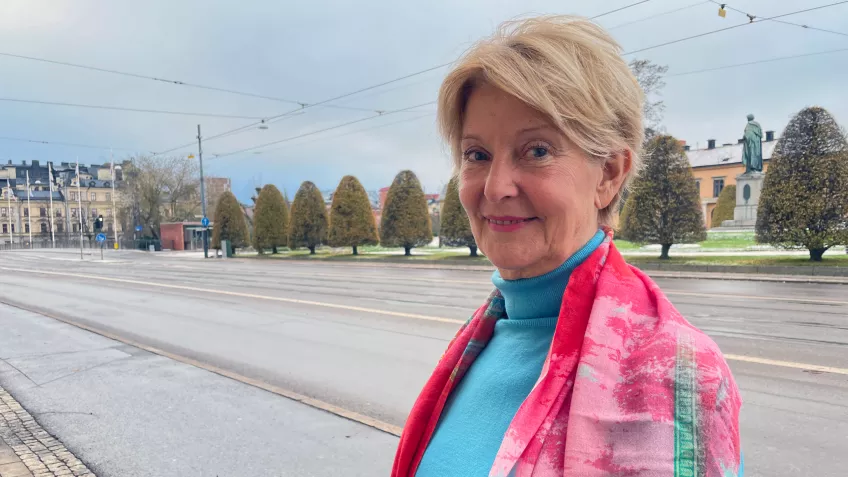Mariam Kirvalidze, PhD student, Karolinska institutet:
– I look forward to learning about what others are doing. So I try to meet others from other universities in other parts of the country, whom I don't otherwise meet. In a workshop you are forced to do that, and that's good.
What do you think about the workshops?
– It's super interesting. After introducing ourselves and our diffenrent research methods we quickly found a red thread, about nursing assistance. Each of us, in medicine, architecture and social sciences, contributed and it shows that interdisciplinary research is an easier way to do it.
Lotta Dellve, professor of Work Science, University of Gothenburg:
– There is a lot of interactivity and participants from different parts of the country and from other countries. It will pay dividends in the future. It's not the first time I've been to a SWEAH conference, I'm curious about the discourse - there's a good mix of senior and young participants here. I look forward to meeting people, hearing their thoughts and testing my own thoughts, both from small and large perspectives on sustainability. I'm glad I could come here today. I think SWEAH will be around for a long time to come.
What are this year's most exciting research findings?
– There is a lively activity going on to reach the UN's sustainability goals, they are difficult goals and they will not be reached until 2030. But we are concretely underway to get closer to the goals. We need to communicate problems, such as how to reduce employees' risk of injury at work. One way is to be observant of early signs of a culture of silence, people who want to appear strong and bite the bullet.
– This conference is very important, creating connections from different universities and from different perspectives. This is an idea I will take with me back home, there we only have conferences on public health. This conference is important as a broader issue. I want to learn more about the other’s ideas, for example in the workshops.
What are this year's most exciting research findings?
– I have my eyes on the social factors in the dementia research and the ongoing trends about that. Dementia is high priority in many countries and there are many fund opportunities. There is a lot of focus on the known factors, like smoking and exercise, but research on social connections are now coming more and more. For example loneliness – there is little knowledge how to engage lonely people.
– I hope I get the chance to ask a few questions to, among others, Martiijn Huisman about living environments for adults. I want to talk to method experts today. But right now I'm concentrating on my own presentation. After that I can enjoy the conference.
What are this year's most exciting research findings?
– I'm new to ageing research and don't really know. I am here to see what I can bring into my work, I am at the end of my first study. My thesis is part of the Register RELOC-AGE project, where I utilise Swedish population registers to study the role of indoor and outdoor living environments on health along the process of ageing.
Ethel Forsberg, chair of the SWEAH board:
– I look forward to meeting all the young researchers and students today who have chosen this area of research. It will be required that knowledge is developed at a high level. Completely unique is not only the breadth of the research in SWEAH, but also the anchoring in 13 universities. It is not easily done, it requires so much commitment. Raise your hand if someone else has done it! It is absolutely fantastic and extremely positive that SWEAH has existed for ten years.
What are this year's most exciting research findings?
– It's such a wide and interesting area, so it's hard to say. But right now I am thinking of new welfare technology, which is often brought up negatively in the social conversation. SWEAH has shown that we can use it and see the possibilities, that many elderly people get access to services in a new way.


